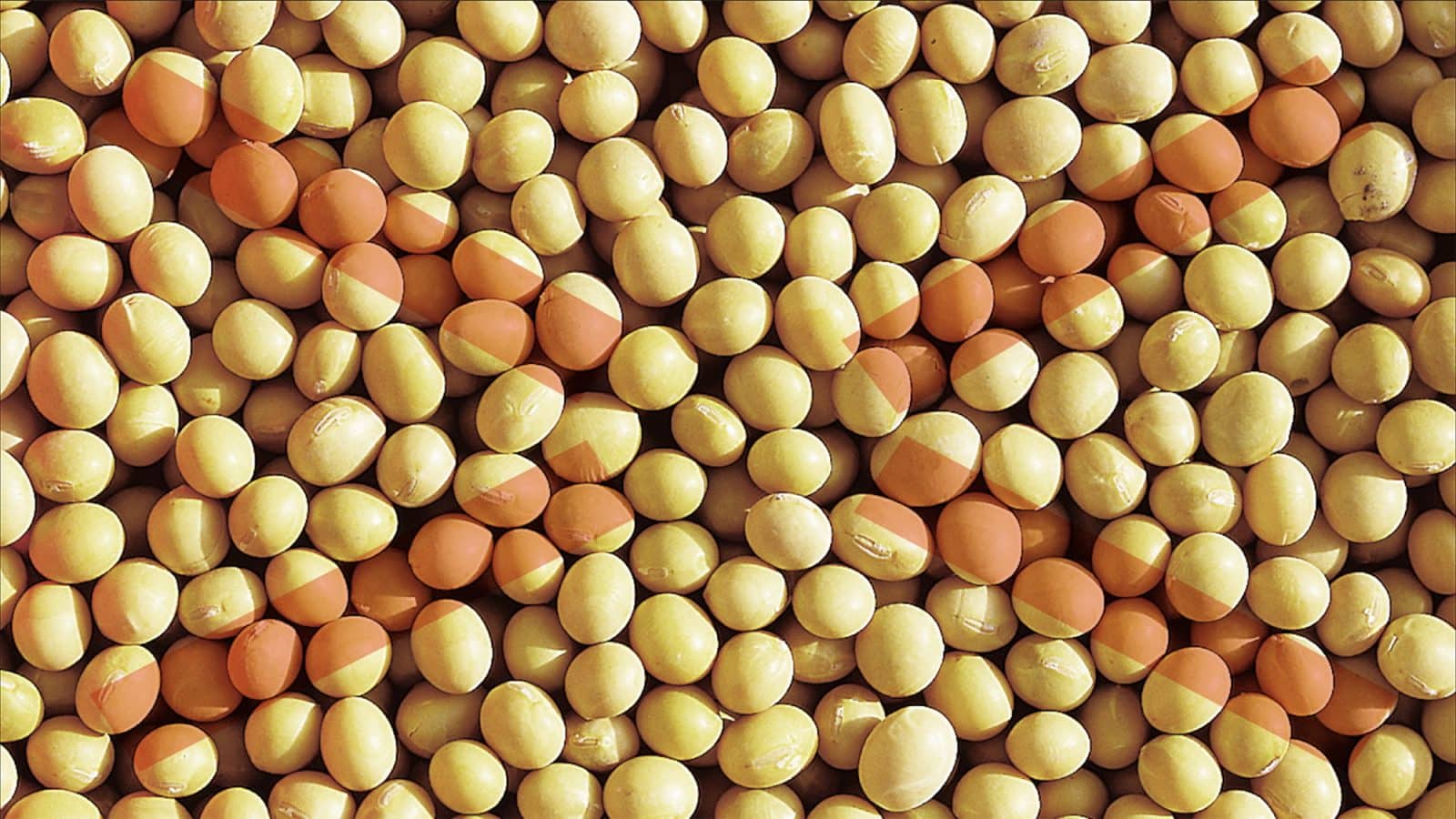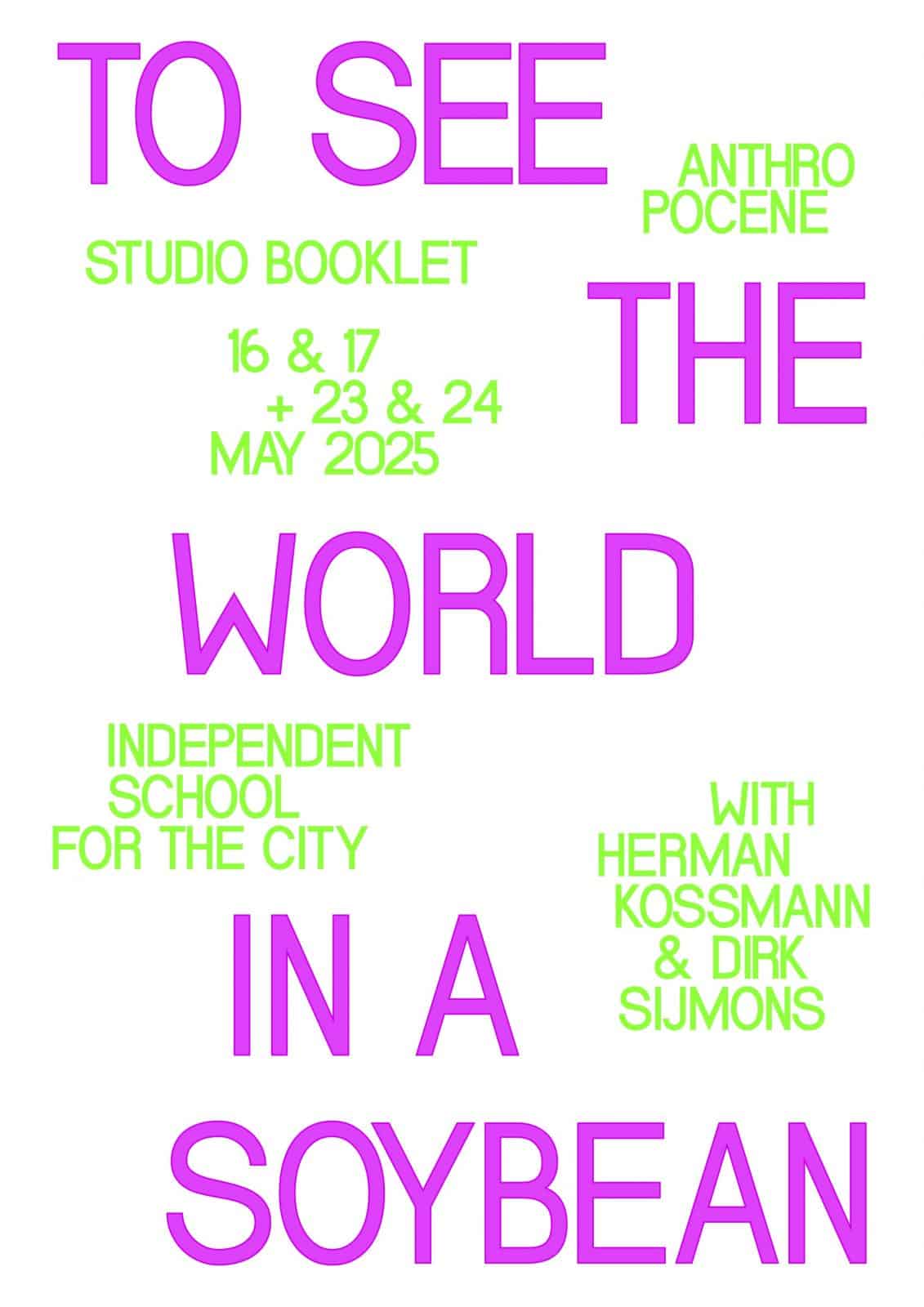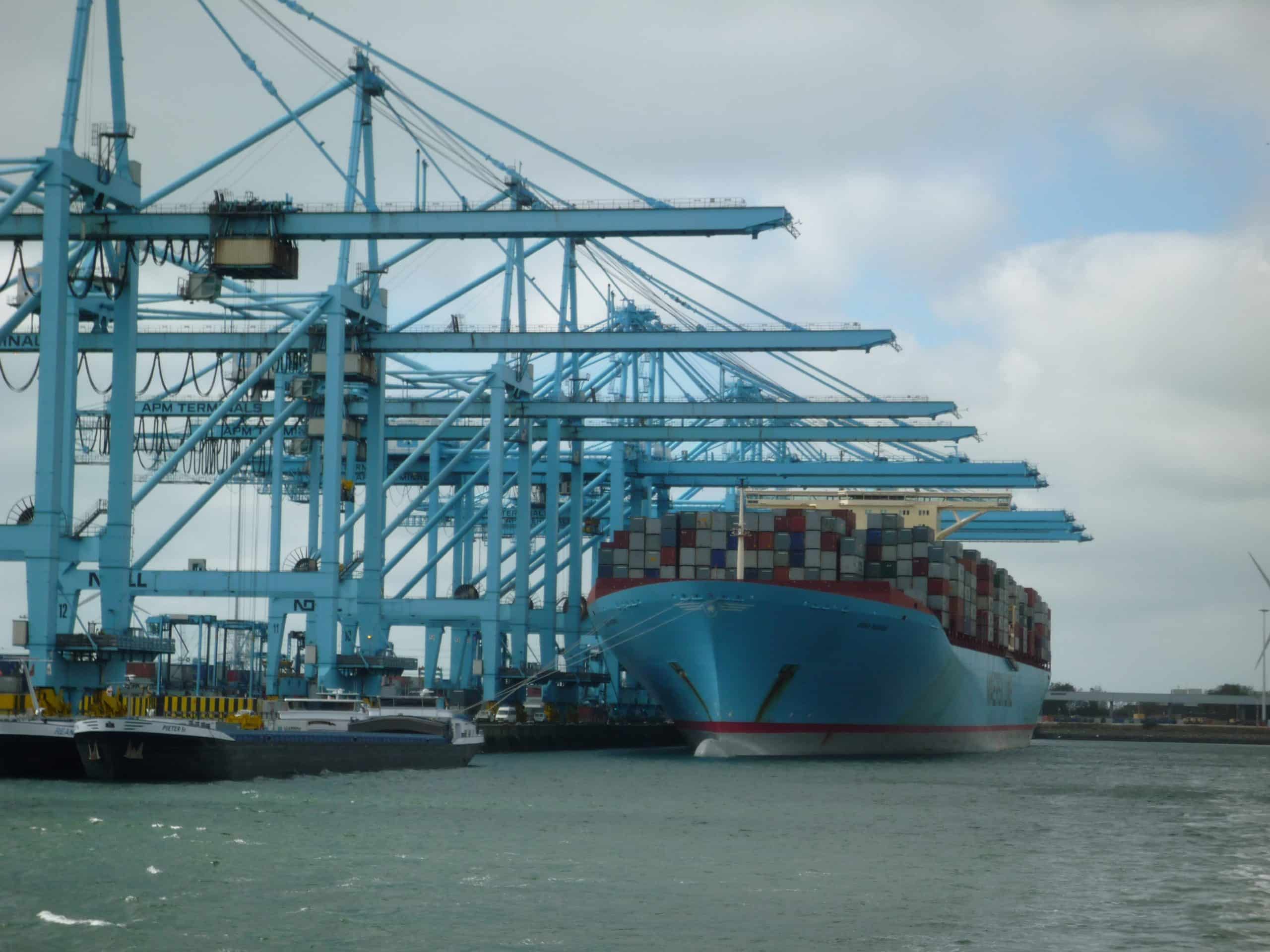To See the World in a Soybean
A four day exploration on the global impact of the Rotterdam port through one specific product: the soybean. Highlighting the relation between the production in the Global South and the Dutch meat industry. Taking place on Fri. 16 & Sat. 17 + Fri. 23 & Sat. 24 May 2025.

Tickets for this workshop are available for 250 euro.
To See the World in a Soybean
As one of the largest harbours in the world, the Port of Rotterdam plays a pivotal role in the global trade of containers, fossil fuels and raw materials. Around 450 million tonnes of goods go through Rotterdam on a yearly basis, amongst which the transhipment and storage of agricultural products, such as corn, grains, soybeans and oilseeds. But while this position as a global trading hub is an important driver of the economy in North-Western Europe, it also has a major negative impact on societies and ecosystems worldwide.
In this workshop explore the global impact of the Rotterdam port on societies and the environment worldwide. An impact that is not only produced by the port itself, but also by those parties and productions that it’s indirectly responsible for up and down its value chain. To really understand how our local economy is entangled with the world, we will focus on one specific product - the soybean - and see how Rotterdam’s harbour and its affiliated network of businesses are directly tied to the destruction of rainforests, the industrial scale production of cheap meat, and the exploitation of human and natural capital all over the world. We will highlight stories that expose the often-hidden impact of this trade, from the transshipment of goods to their consumption, and the resulting effects on communities and the environment.
Tutors
Dirk Sijmons
Dirk Sijmons studied Architecture at Delft University of Technology and is one of the three founders of H+N+S Landscape Architects. He was appointed Dutch Government Advisor on Landscape by the Minister of Agriculture, Nature Management and Fisheries in 2004, was professor of Environmental Design at Delft University of Technology from 2008 until 2015 and has been curator of the Rotterdam Architecture Biennale 2014 themed Urban-by-Nature. Sijmons has published extensively concerning phenomenons in the European landscape, with a strong focus on environmental design and the spatial impact of the energy transition. Sijmons received the Rotterdam-Maaskant Prize in 2002 and the prestigious Edgar Doncker award in 2007 for his contribution to Dutch culture.
Herman Kossmann
Herman Kossmann graduated as an architect from Delft University of Technology. He began his career as a teacher at the Royal Academy of Art in The Hague and carried out a number of mayor renovation projects in Rotterdam as an independent architect. In the beginning of the 90’ he was asked to design and manage some large exhibitions, which became a new direction in his work. In 1998 he set up an interdisciplinary design office, based in Amsterdam with fellow student Mark de Jong: Kossmann.dejong. The office became an international operating design studio specialised in exhibition design and interior architecture.
MIchelle Provoost
Michelle Provoost is part of the Independent School for the City’s Deans Team, partner of Crimson Historians and Urbanists, and director of the International New Town Institute. She is an architectural historian specialised in urban planning history, postwar architecture and contemporary urban development.
Wouter Vanstiphout
Wouter Vanstiphout is part of the Deans Team of Independent School for the City and partner of Crimson Historians & Urbanists. He is an architectural historian and researcher who has written extensively on urbanism and spatial politics. From 2008 - 2010, Wouter held the chair Design & Politics at the TU Delft and from 2012 to 2016, he was a member of the national advisory council on the environment and infrastructure.
Mike Emmerik
Mike Emmerik is the director of the Independent School for the City and partner at Crimson Historians & Urbanists. He is educated as an urban designer at the TU Delft and has over 10 years of experience on research and spatial planning projects at the intersection of urban development and policymaking. Mike is also affiliated with the Dutch Board of Government Advisors where he advises the national government and municipalities on spatial planning in the Netherlands.
Preliminary Course Programme
Day #1: Friday 16 May 2025
10:00 - 10:30 Welcome and Introduction 10:30 - 12:00 Lecture on the port of Rotterdam and its role in global food trade by Wouter Vanstiphout + conversation
12:00 - 13:00 Bus trip to the Port of Rotterdam
13:00 - 14:45 Visiting Portlantis, guided by Herman Kossmann
15:00 - 16:00 lecture on the Anthropocene and planetary boundaries by Dirk Sijmons
16:00 - 17:00 Conversation and reflection
17:00 - 18:00 Return to the Independent School by Bus
Day #2 - Saturday 17 May 2025
10:00 - 15:00 Mapping assignment: our daily meal in a global context
15:00 - 15:45 Lecture on Soy Stories in The Netherlands and Brazil by Caroline Krysel (VU, online from Brazil)
15:45 - 17:30 Conversation and exercise with Sjamme van de Voort (VU)
Public event: Vegan Land - Food for Thought. Tuesday 20 May 2025
19:00 - 21:00 A public evening about the food industry and possible alternatives with Berno Strootman and Kadir van Lohuizen (included in the ticket price). More info here.
Day #3 - Friday 23 May 2025
10:00 - 14:00 Field trip to a pig farming area.
14:00 - 15:00 Lecture about Welvaartsplan Noord-Brabant and the historical development of the food industry by Patrick Timmermans
15:00 - 17:00 To be confirmed
17:00 - 17:30 Return to the Independent School by Bus
Day #4 - Saturday 24 May 2025
10:00 - 11:00 Lecture by Dirk Sijmons on Agriculture in four ways.
11:00 - 15:30 Participants work on short assignment
15:30 - 17:00 Conversation on findings and position

